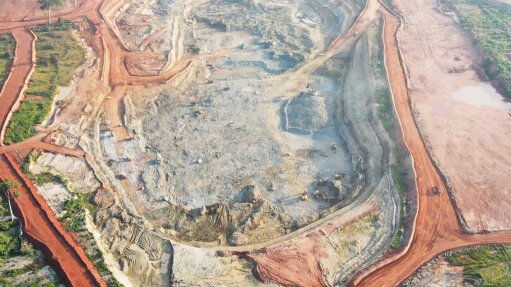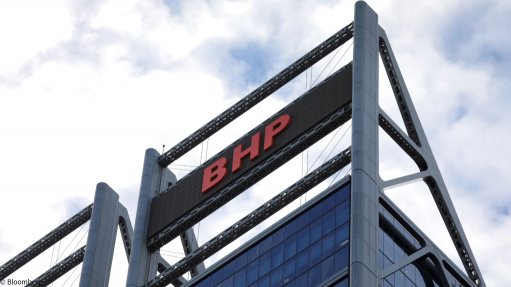South Africa urged to increase investment in innovation
South Africa needs more collective investment to boost its innovation ecosystem and ensure that the investment is translated into improving everyday lives, says Telkom Group innovation and transformation executive Dr Mmaki Jantjies.
Innovation is widely acknowledged as being vital to economic growth and progress and, while South Africa is a leading country in the innovation investment ecosystem across Africa, the current rate of investment is falling short and business-sector expenditure on research and development (R&D) is declining.
South Africa ranked 59 out of 132 economies and second among the 28 sub-Saharan Africa economies in the 2023 Global Innovation Index (GII), which evaluates an economy’s innovation ecosystem performance, she points out.
The GII report highlights the need for African economies to increase R&D investment, in addition to the ongoing demand to improve infrastructure and foster collaboration between the public and private sectors to accelerate innovation growth.
In South Africa, innovation performance is impacted by the investment made in key areas such as R&D and startup investment, Jantjies adds.
The National Survey of Research and Experimental Development, published by the National Advisory Council in 2023, found that overall investment in R&D declined from 0.76% of gross domestic product in 2017/18 to 0.61% in 2020/21.
It further showed a decline in business funding of R&D, with corporate South Africa contributing only 26%, compared with government-led R&D funding at 56.3% in 2020/21.
“Unfortunately, R&D expenditure from the business sector is decreasing, combined with limited funding for external R&D, notably for higher education and the science councils,” says Jantjies, adding that access to early-stage and growth-stage funding also remains a hurdle, as the funds do not always seamlessly trickle down to the entrepreneurs.
Addressing these funding gaps is crucial to ensure inclusive and sustainable growth in the innovation and startup ecosystem.
“Innovation investment has had a particularly positive impact on the youth of South Africa while increasing capacity to address social challenges on a local level. Startups, universities and research institutions and related innovation institutions have been consistent in their pioneering of novel approaches to address the stark challenges affecting South Africa’s economy and wider society while leveraging emerging technologies.”
A thriving startup ecosystem is critical to South Africa as this translates into a vibrant economy, creating employment opportunities and injecting dynamism into a range of sectors, Jantjies continues, highlighting that investment in South African startups “climbed to new heights” in 2022 because of diversified funding from corporations and government programmes alike, such as the Department of Science and Innovation’s Innovation Fund, among other national and international sources.
The necessity of investment in innovation is acknowledged at the highest level of government.
At the end of 2023, the first Presidential Science, Technology and Innovation Panel, which comprises representatives from government, academia, civil society and industry, unveiled a R1-billion PhD training investment from the National Skills Fund.
President Cyril Ramaphosa has invited further investments from private-sector organisations.
“All these initiatives constitute important steps in ensuring investment in innovation, particularly in the key areas of R&D and human capital development.
“By directing collective resources toward local innovators, startups and research initiatives, South Africa’s innovation stakeholders can create an environment that nurtures creativity and problem-solving to generate ground-breaking ideas.”
She points to the Telkom Centres of Excellence (CoE) as an example of public- private partnerships supporting national innovation while addressing inequality, with leading university academics across CoEs conducting research in key telecommunications and information and communication technology (ICT) areas.
CoEs based across various South African universities have produced over 3 600 graduates with many of the recipients of the programme now holding leadership positions across the ICT and telecommunications sector.
Further, during the inaugural Telkom Group Innovation Challenge, a group-wide employee innovation programme, Telkom South Africa awarded up to R1.25-million to the winners.
“At Telkom, we recognise the importance of innovation on a national level. We took a bold step into the future with the inaugural Telkom Group Innovation Challenge – an electrifying arena we proudly named the Lion’s Den,” says Jantjies.
“Through the Lion’s Den, our goal was to recognise the competitive landscape we navigate as OneTelkom. We wanted to acknowledge that innovation is the heartbeat of progress in this dynamic digital realm.”
From more than 60 submissions by Telkom Group employees, who shared their ideas to propel the group towards a future marked by innovation, ten of the strongest submissions were identified after a series of rounds.
The ten finalists presented their ideas on December 8 to the Telkom Group Innovation Challenge Lions, which included Telkom group chief human resources officer Melody Lekota; Openserve CEO Althon Beukes; BCX CEO Jonas Bogoshi; Telkom Consumer and Small Business CEO Lunga Siyo; and Gyro Executive for IT Technology Solutions Lloyd Chego, who evaluated the concepts and determined the winners of the challenge.
“After weeks working on customer-focused innovative ideas, working with experts to refine them into business plans and presenting them to the Lions, we are thrilled at the calibre of our four winners. We believe their ideas will be game changers for our business,” says Jantjies.
Comments
Press Office
Announcements
What's On
Subscribe to improve your user experience...
Option 1 (equivalent of R125 a month):
Receive a weekly copy of Creamer Media's Engineering News & Mining Weekly magazine
(print copy for those in South Africa and e-magazine for those outside of South Africa)
Receive daily email newsletters
Access to full search results
Access archive of magazine back copies
Access to Projects in Progress
Access to ONE Research Report of your choice in PDF format
Option 2 (equivalent of R375 a month):
All benefits from Option 1
PLUS
Access to Creamer Media's Research Channel Africa for ALL Research Reports, in PDF format, on various industrial and mining sectors
including Electricity; Water; Energy Transition; Hydrogen; Roads, Rail and Ports; Coal; Gold; Platinum; Battery Metals; etc.
Already a subscriber?
Forgotten your password?
Receive weekly copy of Creamer Media's Engineering News & Mining Weekly magazine (print copy for those in South Africa and e-magazine for those outside of South Africa)
➕
Recieve daily email newsletters
➕
Access to full search results
➕
Access archive of magazine back copies
➕
Access to Projects in Progress
➕
Access to ONE Research Report of your choice in PDF format
RESEARCH CHANNEL AFRICA
R4500 (equivalent of R375 a month)
SUBSCRIBEAll benefits from Option 1
➕
Access to Creamer Media's Research Channel Africa for ALL Research Reports on various industrial and mining sectors, in PDF format, including on:
Electricity
➕
Water
➕
Energy Transition
➕
Hydrogen
➕
Roads, Rail and Ports
➕
Coal
➕
Gold
➕
Platinum
➕
Battery Metals
➕
etc.
Receive all benefits from Option 1 or Option 2 delivered to numerous people at your company
➕
Multiple User names and Passwords for simultaneous log-ins
➕
Intranet integration access to all in your organisation


















